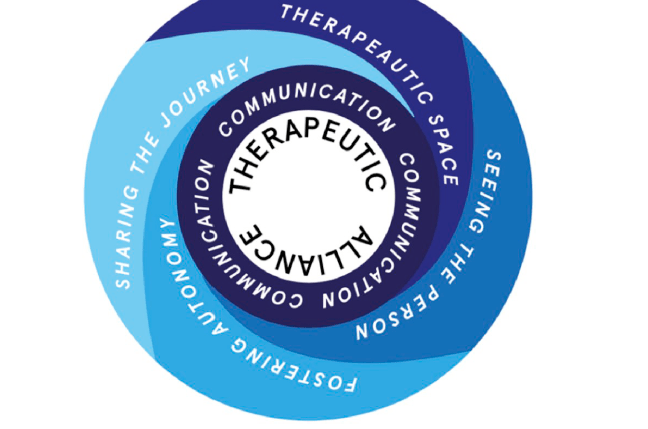
Conceptualisation of the therapeutic alliance in physiotherapy: is it adequate?
PetterSøndenå, GeorgiDalusio-King, ClairHebron (2020)
https://www.sciencedirect.com/science/article/pii/S2468781219306198
Objective: The Therapeutic Alliance (TA) is an emerging concept within physiotherapy practice, reflecting the ongoing paradigm shift from a biomedical- (BMM) towards a biopsychosocial model (BPSM) of care. Current conceptual understanding of the TA is commonly based on Bordin’s (1979) definition, developed within a psychotherapy context. A concept analysis was conducted in order to provide conceptual clarity of the TA within physiotherapy literature.
Method: An evolutionary method of concept analysis was followed. An extensive literature search was conducted, and eligible articles were submitted to inductive, semantic thematic analysis.
Findings: A total of 14 articles were included within this concept analysis. 5 master attribute themes, and 4 corresponding sub-themes were identified following thematic analysis. The master attribute themes were: ‘Seeing the person’, ‘Sharing the journey’, ‘Communication’, ‘Therapeutic space’ and ‘Fostering autonomy’. The 4 Sub-themes were: ‘Giving of self’, ‘Legitimising the experience’, ‘Physiotherapist characteristics matter’ and ‘Interpersonal collaboration’.
Conclusion: A heuristic interpretation of the TA within a physiotherapy context is offered. The TA is a dynamic construct within the clinical encounter and is influenced reciprocally between the person seeking care and the physiotherapist by biological, social and psychological contributing factors. ‘Communication’ may act as a catalyst in operationalising the TA in a physiotherapy context. Continued efforts are needed in physiotherapy education and training in both enhancing theoretical awareness of the role of the TA within physiotherapy practice, as well as guidance on its implementation in clinical practice.
